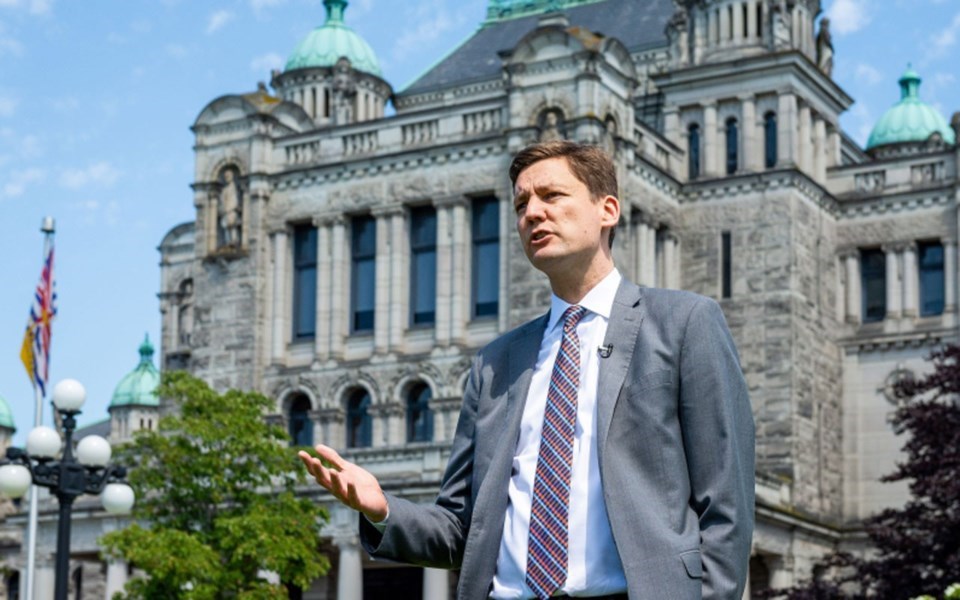On Nov. 18, British Columbia officially welcomed David Eby as the province’s 37th premier.
The 46-year-old, Point Grey-based lawyer became premier after a contentious and controversial leadership race following the retirement of one of the most popular premiers in Canadian history, John Horgan.
Horgan ended his career with the highest approval rating of any premier in Canada, with an average approval of 54 per cent over five years. Levels not seen since the Social Credit Party premiers from days of old. Big shoes to fill.
While I’m not all that qualified to offer political advice, I thought I’d offer some tips to the new premier on what I think would help make this a successful tenure.
Visit the small towns
Some of the smaller towns and villages in the province—the under-20,000 club—need attention, in some cases, even more so than the cities.
Lytton, Merritt and fast-growing Pemberton, to name just a few, are dealing with massive issues of varying scales and need strong provincial support. I could write a whole opinion piece on why supporting rural communities is so important, but I’ll save that for another time.
The NDP has been an urban-focused party for decades now. Following the most recent election, many rural communities decided to go with the soon-to-be-renamed BC Liberals, even in a year when the NDP was polling exceptionally well.
Many of these areas are unlikely to flip to the NDP in a future election. However, being premier means representing all citizens of our great province, so I recommend extending the olive branch to the smaller towns and working diligently to help solve some of the complex issues facing them.
You never know; some voters could change their minds if they feel like you are making a concerted effort to listen to the countryside’s concerns.
Stick to your guns—but listen to people’s concerns
From what I’ve seen so far, this premiership is certainly off to an ambitious start, with a far-reaching housing plan and proposals to tackle affordability and get crime under control in our urban areas already unveiled.
There will be pushback, and we are starting to see the beginnings of it. Some people will not be onboard with the new proposed rules around allowing rentals in strata buildings or plans to open the door to higher-density housing in lower-density neighbourhoods.
It’s important to stand your ground on policies you believe will help solve the province’s problems, but you have to pair that with a willingness to listen to people’s concerns. Be open to changing your mind, and don’t get too ideological.
We’ve seen more than a few politicians fall to their ideological brinkmanship over the last few years, so best to avoid that where possible.
Keep your stick on the ice
Keeping your stick on the ice means being ready for anything. When the puck comes your way, you must be prepared to one-time it into the net.
If the pandemic and recent climate events have taught us anything, it’s that you can’t predict the future, and sometimes we are dealt with unforeseen challenges to overcome.
Many places are still rebuilding from the fires and floods that devastated the province a year ago, efforts that will continue throughout the rest of the term.
Progress has been made, with Highway 8 finally reopening, and most of the damage has been cleared up in the Fraser Valley. But, these days, as one emergency ends, another seems to begin. Just look at the Sunshine Coast, where a state of emergency was lifted just days ago after severe water shortages hit the coastal region.
Being premier doesn’t strike me as an easy job. There are countless crises to manage simultaneously, and you have to do so in partnership with various other levels of government which may not see eye to eye, while also tackling complex, longstanding issues such as the housing and the opioid crises all at the same time. So, let’s raise a glass to B.C.’s new premier. He’s got a long road ahead.




